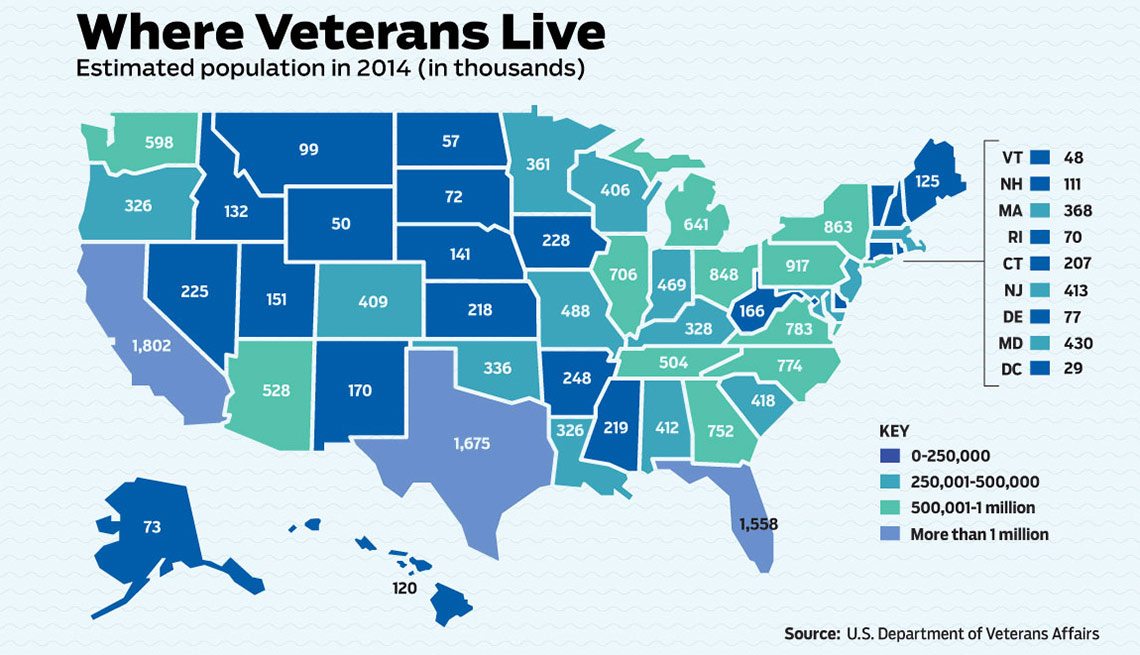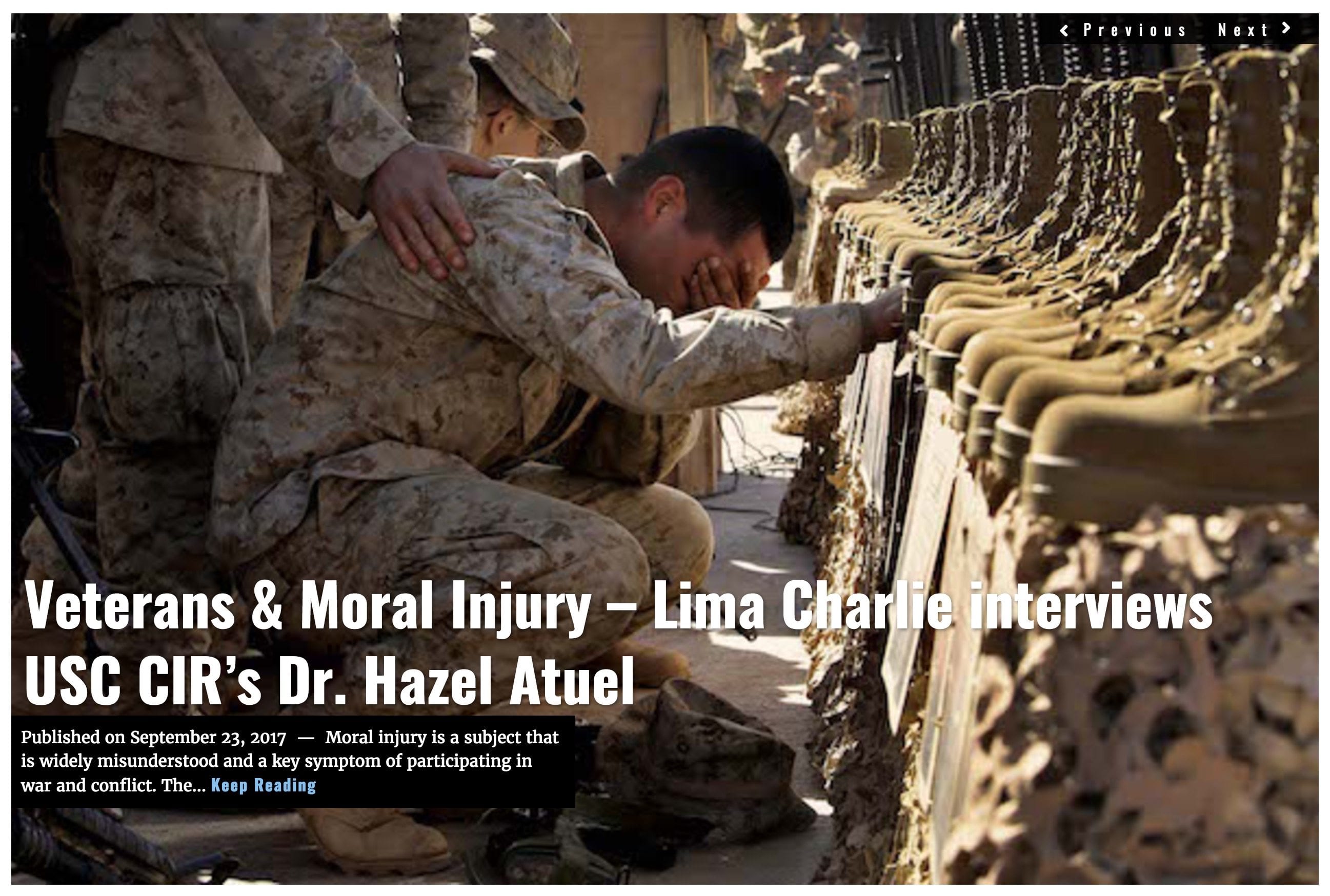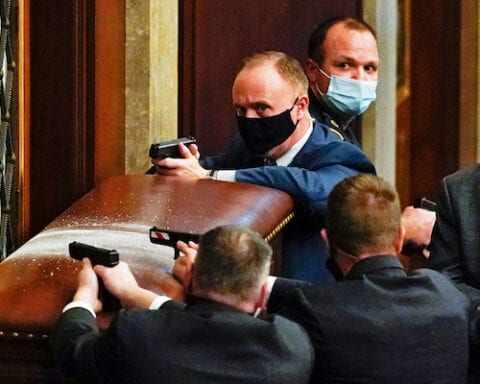Military service and small business ownership seem to go hand-to-hand. Consider the following facts. Veterans are 20% more likely to be self-employed than non-veterans, accounting for an increase in veteran-owned businesses in excess of 100,000 between 2007 and 2012. Small businesses account for 80% of net job growth in America. The inference that these factors support is that veteran employment can provide both economic stability and foster resiliency during turbulent times.
With California having the highest population of veterans in the nation, it is rather fitting that the University of Southern California (USC) houses the Center for Innovation and Research on Veterans & Military Families (CIR) at the Suzanne Dworak-Peck School of Social Work. This week CIR (pronounced “Sir”) hosted the “State of the American Veteran 2017” conference (#SAVC2017) bringing together scholars, journalists, politicians and veterans in the Los Angeles area. Given that California is the most populous state in the nation, it shouldn’t be surprising that it also has the highest population of self-employed veterans (252,377).
The theme of this year’s SAVC 2017, the many issues veterans face transitioning from military to civilian life, was a perfect forum to discuss veterans entering the business world.

As a veteran seeking to open a business in California, there are some financial incentives offered by the state, which make it an attractive prospect. For instance, the state issues a business license fee waiver, tax incentives and other fee waiver benefits for veterans. Additionally, the state has mandated that all state contracts must include the provision that at least 3% of the contract be awarded to a Disabled Veteran Business Entrepreneur (DVBE) firm. According to the CA DVBE program, the state went above and beyond the 3% minimum by doing business with over 6.3% veteran-owned firms.
Los Angeles County is the state’s (and the nation’s) most populous county. Simultaneously, it has the highest number of veteran-owned businesses in the nation. The largest municipality within the county, the City of Los Angeles, has some of the most aggressive policies in the nation, aimed at promoting business with DVBE firms. In fact, Mayor Garcetti was one of the first mayors to require that 3% of the city’s contract opportunities go to a service-disabled veteran-owned firm. The city also offers an 8% bid price reduction for DVBE firms.
The City of Los Angeles understands that by adopting legislative initiatives promoting veteran-owned businesses it gives the veteran population an opportunity to contribute to the overall health of the economy. Indeed, in 2014, Mayor Garcetti, in collaboration with USC, created a “10,000 Strong” jobs plan for veterans. Leaders in Los Angeles, the state’s largest city, and Sacramento, the state’s capital, are uniquely positioned to be the standard-bearer for the rest of the state and nation, respectively.

California is not alone, as many states have started to recognize that it pays to support veteran entrepreneurs. For instance, Texas, Michigan and Georgia clear veterans from business fees if they meet specific guidelines outlined by each state. Recently, West Virginia adopted a policy that allows veterans to save up to $200 if they attend the “Boots to Business” program. This program provides an exemption for veterans with regard to paying the business registration fee and annual report filing fee, for the first four years of their business.
In New York State, there is a veteran loan program that offers term loans, below the market fixed rate, to current and former members of the military. Additionally, the state recently adopted a policy that aims to allot 6% of state contracts to service-disabled veteran owned business. In Washington State, veteran business-owners can take advantage of the “Veteran Linked Deposit Program.” Under this program, self-employed veterans can take advantage of low-interest rate business loans, improving access to capital for certified business enterprises owned by former and current service members.
Despite such advances, there is still room for improvement. There are many states that do not have incentives for veteran-owned businesses. Some cities, such as San Diego, limit their veteran business inclusion programs to just a “good faith effort.” They do not require mandatory inclusion incentives for more impactful approaches, such as those outlined above in the City of Los Angeles and the State of California.

The City of San Diego, a well-known as “military city,” has the third largest veteran population in the nation. Yet, it is ironic that there isn’t even a veteran-owned business incentive program in place. It is also a shame that the city is experiencing an increase in the number of homeless veterans, which I feel is an avoidable tragedy. The city maintains that if they have special incentive programs for veteran-owned firms, then they would have to do it for “everybody.”
The notion of a “good faith effort” is outdated and makes room for bad practices among prime contractors. Simply put, if primes don’t have to share their “pie of opportunity,” veteran-owned firms can more easily be excluded from the bidding process.
Without policies in place to protect and support veteran-owned businesses, we are left with empty promises. If politicians and corporations want to go above and beyond a simple “thank you for your service” handshake, then they might consider creating opportunities for veterans that show they care. It is good for the local economy and it is the patriotic thing to do.
Liz Perez, for Lima Charlie News
Comments & opinions are my own.
U.S Navy Veteran, entrepreneur, White House Champion of Change 2013, U.S Delegate to Japan 2013, U.S. Delegate to Israel 2016 and Appointed By Governor Brown July 2017 to serve on the Veteran’s Board, MBA student at Syracuse University Whitman School of Business Management, Truman National Security Project fellow.
Lima Charlie World provides global news, featuring insight & analysis by military veterans, intelligence professionals and foreign policy experts Worldwide.
For up-to-date news, please follow us on twitter at @LimaCharlieNews
In case you missed it:




![A Trump war crime pardon dishonors us all [Lima Charlie News]](https://limacharlienews.com/wp-content/uploads/2019/05/A-Trump-war-crime-pardon-dishonors-us-all-Lima-Charlie-News-480x384.png)
![Image Imagine a Global Space Community ... The Space Foundation Can [Lima Charlie News][Graphic by Anthony A. LoPresti]](https://limacharlienews.com/wp-content/uploads/2019/03/Space-Foundation-Space-Symposium-Lima-Charlie-News-480x384.png)



![Image Memorial Day may soon be a remembrance of democracy and those who had the courage to defend it [Lima Charlie News]](https://limacharlienews.com/wp-content/uploads/2018/05/Memorial-Day-may-soon-be-a-remembrance-of-democracy-and-those-who-had-the-courage-to-defend-it-Lima-Charlie-News-480x384.png)
![The Mind of Bolton - AUMF and the New Iran War [Lima Charlie News]](https://limacharlienews.com/wp-content/uploads/2019/05/Inside-the-mind-of-Bolton-Lima-Charlie-News-main-01-480x384.png)

![A Trump war crime pardon dishonors us all [Lima Charlie News]](https://limacharlienews.com/wp-content/uploads/2019/05/A-Trump-war-crime-pardon-dishonors-us-all-Lima-Charlie-News-150x100.png)